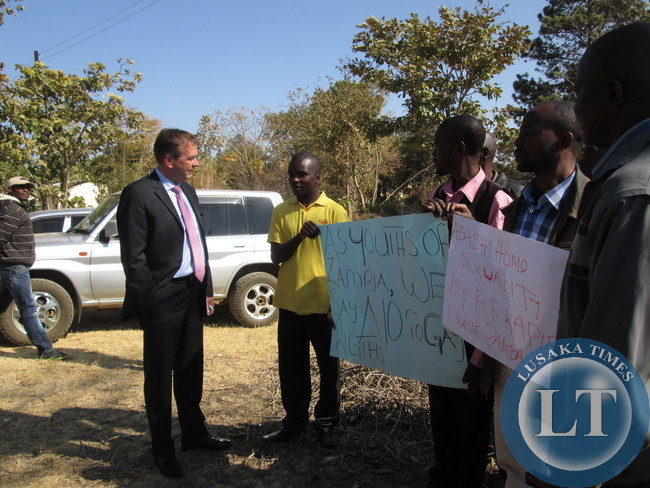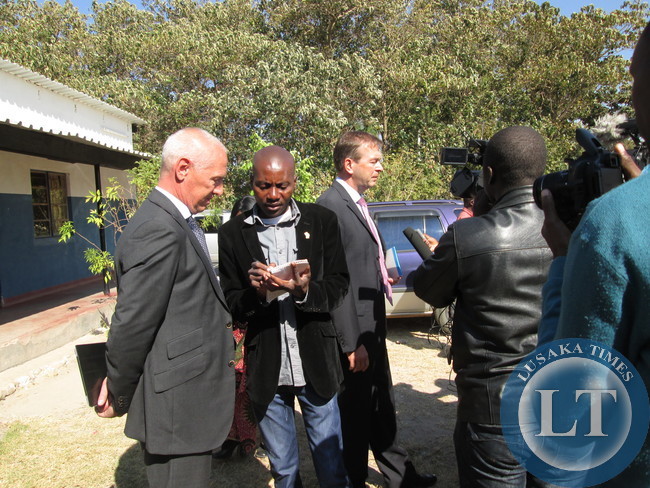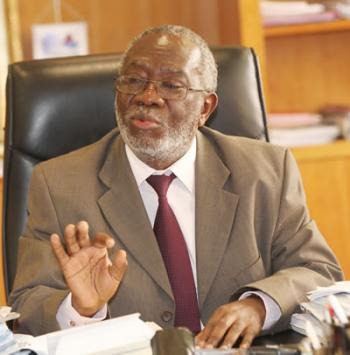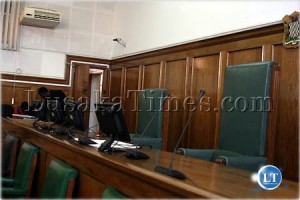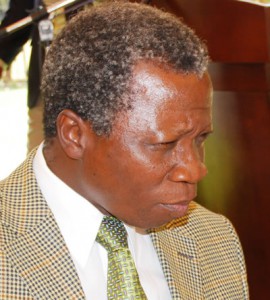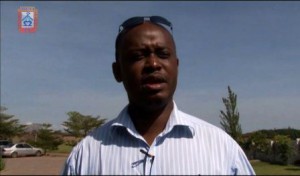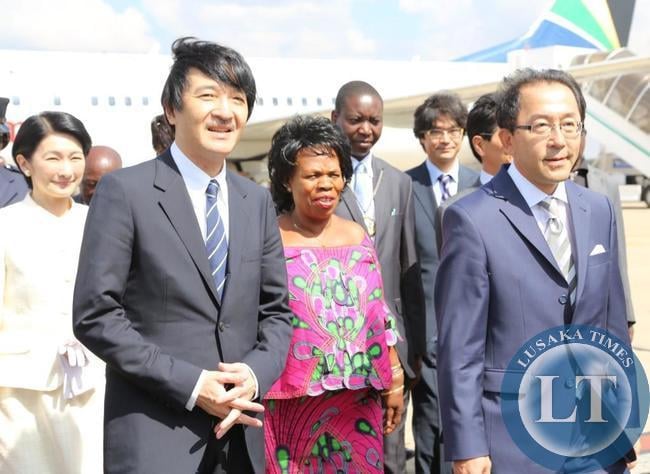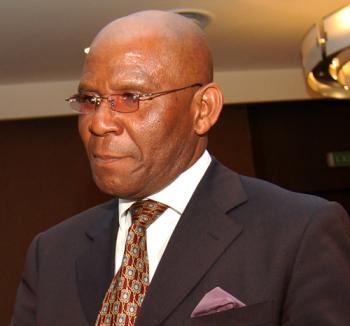By Mwinelubemba Chitimukulu Kanyanta-Manga II
Preamble
Indeed the Institution of Chiefs is on a slippery ground, unprecedented at this precise moment in the history of this country. I use the word “unprecedented” because at no previous time even during the colonial rule have the traditional and cultural rights as well as the dignity of traditional rulers been so despised as it is today.
[pullquote]It is, however, incomprehensible that His Excellency, the Acting President, who is a prominent lawyer is not aware that there are a plethora of legislation relating to land administration, disposition and alienation.[/pullquote]
Politicians have created a dangerous gambit wherein the urban-born supposed intellectuals have since 1991 been trying to find ways to dilute and eventually abolish traditional ruler-ship in this country in order to pave a way for a strong working class that would be sociologically undefined, since there seems to be an uneasy balance between simple tribal affiliations and the so-called modernism. And as a practical example, there was no House of Chiefs during Dr. Chiluba’s ten years rule. The chiefs have been systematically excluded from meaningful participation in socio-economic development of the country and consequently the role of chiefs in matters of national interest and development are not even defined.
The Acting President, Honourable Winter Kabimba was thoroughly quoted in the media on 30th June 2014 to have told PF officials as well as Subuyunji and Mumbwa District Commissioners:
‘’You don’t need a letter from the chief or anybody to construct a government building. There is no law like that in this country. The law says all land is vested in the President on behalf of the people.’’
It is, however, incomprehensible that His Excellency, the Acting President, who is a prominent lawyer is not aware that there are a plethora of legislation relating to land administration, disposition and alienation.
In fact our Acting President was instructing civil servants and PF officials to alienate any hectarage of land anywhere in the country for assumed government projects without even the slightest courtesy of consulting the local people. I believe that the purpose of enacting law in every society is to solve problems before they occur. And hence, Parliament enacts laws, which are enforced by the police. And the interpretation of laws is the sole purpose of the courts. However, interpretation of the laws is critical and tricky and it certainly requires understanding or insight which is the ability to see connections between one fact and another and between facts and real life and it is therefore illogical to take law merely at its face value and that is why in the end we have the Supreme Court and the World Court.
Land Act 1995
Professor Michelo Hansungule wrote in Keynote Paper: Constitutionalism and Constitutional Development: “When the 1995 Land Act was being debated in Parliament, people especially in rural areas rejected it. Chiefs cried foul with authorities pointing out that the government intended to take away the powers of local people over their land in favour of foreign investors under its Western inspired market reform programme. After much pressure across the country, the government announced that it would enact the law against the wishes of the people and decided to fast track the Bill in Parliament by waiving the 21 days rule on publication of Bills before being presented for reading. Even before the people realized it, the Bill was law.”
It is therefore clear that the so-called ‘’Zambian democracy’’ is now caught between two sets of contradictory desiderata. Here then we can see that ‘’democracy’’ within the Zambian context can be re-defined as ‘’the interest of the stronger.’’ During the time leading to the 1991 elections, the same people were beating up drums to tell the world that they were going to restore democracy in Zambia.
‘’It is easy to issue commands and enforce them by rope and the stake, the concentration camp and the gulag,’’ wrote historian Arthur Schlessinger. ‘’It is much harder to use argument and achievement to overcome opposition and win consent.’’
The guideline on the role of chiefs in the land administration could only be drawn from the creation of Native Trust Lands, by Northern Rhodesia (Native Trust Lands) Orders-in-Council 1947, which was meant to benefit the indigeneous people. This Act obliged the Governor (the representative of His Majesty’s the King of England) to consult the Barotse and Native Authorities before land in the Trust Lands was assessed for any purpose.
In 2002 when the chiefs met at Mulungushi International Conference Centre and in their final document which was dubbed “Mulungushi Declaration,” they queried President Mwanawasa, a State Counsel, on the sensitive issue of ‘’vesting land in the President.’’ And in article 15 of his letter dated 1st October 2002, he stated:”…
When land has been acquired by government and given to investors this is by law required to be done only after consultations with the local chief and almost without exception land will not be given without his consent. There is nothing wrong in the law providing that all land in Zambia shall vest in the President. The President does not personally own land. It is just that the President is an institution which holds land on behalf of the people. The President has delegated his authority to the Commissioner of Lands whose responsibility it is to issue title deeds and when such title deeds are in areas falling under the jurisdiction of the chief, they will not normally be issued without the consent of the chief…”
And if we come down the line to what President Mwanawasa stated: “When land has been acquired by government and given to investors this is by law required to be done only after consultations with the local chief…..” And what law was he referring to if not the Orders-in-Council 1947, since what was only done after attaining our independence was only to substitute “Native Trust Land for ’’customary land.’’
Professor Michelo Hansungule in article 7.15 of Simplification of the 1995 Land Act asks: ”Can land be compulsorily acquired by the President?” He went on to answer: “Yes. This is a very important point because it touches on rights. The President has power under the Lands (Acquisition Act), Cap 296 of the Laws of Zambia to compulsorily acquire any land in the public interest.
However, there is no provision in the law for the President to compulsorily acquire customary land. The powers of acquisition can only be invoked for leasehold land which is why it is very dangerous to convert customary land to leasehold land.”
Honourable Mr. Justice Dr. P. Matibini, S.C., presented a paper, ‘’Alienation of Land – A judicial Perspective’’ to the Streamlining Land Administration workshop on Land Circular Number 1 of 1985 in Livingstone.
Supreme court case Yengwe Farms limited v Masstock Zambia Limited and Others
‘’There are interesting issues that were considered by the Supreme Court in the case of Yengwe Farms limited v Masstock Zambia Limited and Others. The facts giving rise to the appeal where that the appellant (Yengwe Farms Limited) applied for a ninety-nine year lease in relation to the land dispute. The application was considered by the local authority after consultations with the local chief. Subsequently, the application was transmitted to the Commissioner of Lands for processing. The appellant was given 2000 hectares and issued a certificate of title to that land.
‘’On appeal to the Supreme Court, three grounds were advanced as follows:
- First that the trial judge erred in law, and fact in holding that the President can make valid dispositions of land notwithstanding Circular Number 1 of 1985, and that if he steps on other people’s toes, then the constitutional provisions on compensation came into play.
- Second that the trial judge erred in law and fact, in not making any specific declarations, and or orders sought by the appellant, and leaving it to the discretion of the Commissioner of Lands.
- Third that the trial judge erred in law, and fact in holding that the Commissioner of Lands did not have powers to allocate the mass of land he allocated to the appellant.
‘’In relation to the first ground of appeal, it was submitted that the trial judge erred in holding that the President as a custodian of all land had power to make unrestricted dispossessions of land. The Supreme Court was referred to the Land (Conversion of Titles Act), which provided that the President held all land on behalf of the people of Zambia, and not for his beneficial interest. It was further submitted that in terms of Circular Number 1 of 1985, the power of the President is limited. The attention of the Supreme Court was drawn to section (d) of the Circular on reserves, and trust lands. In the alternative it was argued on behalf of the appellant that even if the President had power to allocate the land in dispute, he could not exercise that power to deprive a person of any interest he already began to enjoy.
‘’It is instructive to note that the Supreme Court, however, observed that the tenure in trust lands, and reserves was governed by the Northern Rhodesia (Native Trust Land) Orders in Council, 1947 to 1963, as amended by the Lands Act of 1995. The net effect of these orders, the Supreme Court went on to observe, is to provide restrictions in the alienation of land held under customary tenure. In this regard, the Supreme Court referred to restrictions contained in section 3 (4) (c) of the Lands Act. Section 3 (4) provides that: ‘’The President shall not alienate any land situated in a district, or an area where land is held under customary tenure-
(a) taking into consideration the local customary law on land tenure which is not in conflict with this Act.
(b) Consulting the local authority and the chief within whose area the land is situated.
(c) Without consulting any other person, or body, whose interest might be affected by the grant.’’
‘’ Thus the Supreme Court noted that even in the absence of Circular No.1 of 1985, there are restrictions on the power of the President to alienate land.’’
Draft Land Policy 2002
In the Draft Land Policy 2002, it is unbelievably shameful that our fellow Zambian technocrats or professionals could scheme such a satanic document without a grain of thought for their peasant relatives living in villages.
The deadly trigger was cleverly inserted in chapter 3 and the second paragraph of article 3.1: “The demand for land has increased considerably and there are applicants seeking both state and customary lands. However, in this current state, the land delivery system is unable to meet the increase in the demand by the public for land title. The high demand for land calls for conversion of customary land into state land to meet future land requirements.” (emphasis mine). And article 6.0 stated: The Land Policy must be implemented with urgency.’’
And what this meant in practice was that land could be allocated from Lusaka to anybody and anywhere in Zambia without even the courtesy of consulting a chief in the affected area. And the implication is that before conversion, the land is the property of the community and subject to the community rights. After conversion, the community which had equal rights on the land will have lost them. And when the title deed has been issued, it individualizes the rights on land, which belongs to the title holder. And what must also be carefully noted is that the community which owned the land benefits completely nothing from the transaction.
And I single-handedly challenged the government on this issue.
Squeezing chiefs further -NCC Draft Constitution
Article 290 in the NCC Draft Constitution read: (3) “Customary land shall not be alienated or otherwise used until the approval of the chief and the local authority in whose area the land is situated has first been obtained and as may be provided by or under an Act of Parliament.” (4) “An approval under clause (3) shall not be unreasonably withheld.”
In the first place, it is only an unreasonable chief who would withhold land unreasonably. Second, the synonyms of the word “unreasonable” according to Oxford Learner’s Dictionary are: foolish; idiot; ignorance; imbecile; nincompoop; silly; simpleton; twit or zombie. Is this not really deliberately kicking sand into the chiefs’ eyes?
And furthermore, the wording “unreasonable” is not only very ambiguous but also relative. There are no reasonable parameters attached to clause (4) which clearly define what may constitute “unreasonable.” The said clause (4) does not specify the authority that shall declare the decision of traditional authority (chiefs) under clause (3) to be unreasonable.
And since the clause is ambiguous, it could therefore mean that even the District Commissioner can easily alienate customary land and should the chief and the community object, they would simply be declared to be “stupid and unreasonable,” and that would be the end of the story.
I then decided to write to every chief to try and obtain signatures before the Draft Constitution was presented to Parliament but to my great disappointment, only 15 out of 286 chiefs responded. I finally managed to obtain over 1,000 signatures from the Bembas which I presented to the NCC secretariat.
And on the other hand, I learned from His Royal Highness Chief Mukwikile then a Member of the House of Chiefs, who in turn had been informed by the Clerk of the House of Chiefs that traditional rulers through the House had not been consulted on the Lands Tribunal Bill 2010. And with regard to the specific Bill, Section 4 (b) states as follows: “The Lands Tribunal shall have jurisdiction to hear and determine disputes relating to land and in particular to inquire into, and make awards or decisions in, any dispute relating to land under customary tenure.”
What is the motive behind this Bill? It is meant that when one of them applies for land in any chiefdom and if the community rejects, then he takes the matter to the Lands Tribunal which obviously would rule in favour of the applicant. It is quite clear that chiefs are being squeezed out of power from every angle.
Here is what Professor Michelo Hansungule wrote to me in this respect: “…such powers as proposed would undermine the Constitution and general law. The current Constitution recognizes both title deed and customary land tenure. The meaning of this is that customary methods of adjudicating disputes related to land are recognized under the Constitution as modern system for leasehold land.
‘’Any attempt to impose leasehold tenure on customary land amount to abolishing this tenure. Here, what government needed to do if it was serious with addressing land disputes in customary tenure is to invest in the development of this tenure so that positive solving techniques are identified from different ethnic groups and custodians of these values ensnared into their progressive interpretation and application. It must be remembered that Zambia is diverse in customs, cultures, traditions and practices, particularly on tenure. A uniform system of justice such as is being proposed in this Bill is recipe for disaster.”


